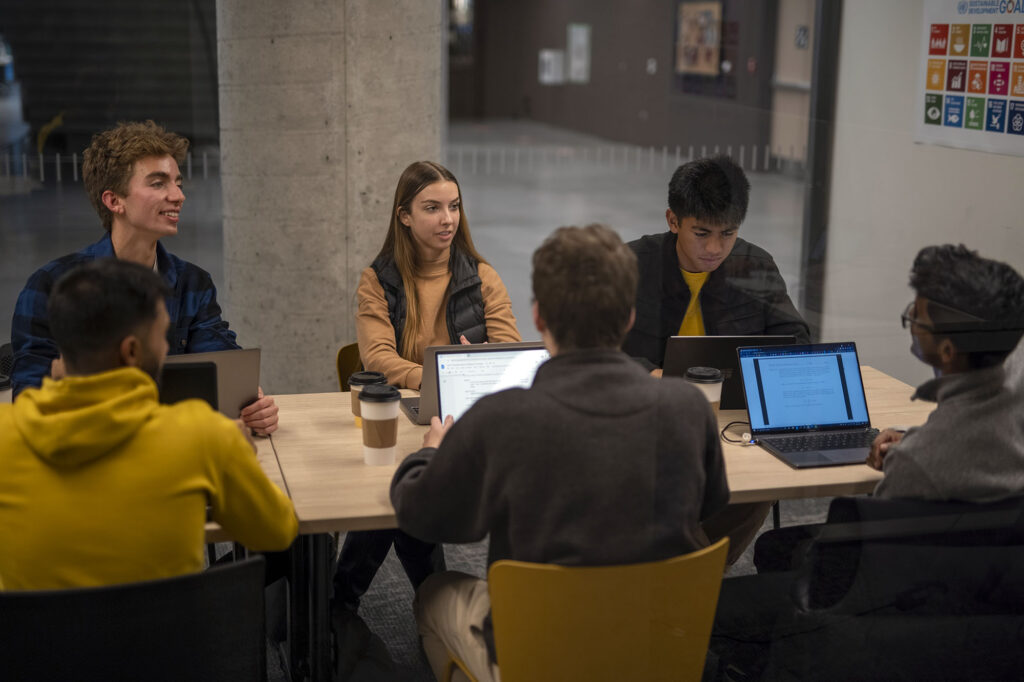Students from across the university will have the opportunity to help shape entrepreneurship and social innovation on campus because of a new Memorandum of Understanding between Carleton’s Innovation Hub and the Carleton University Students’ Association (CUSA).
“One of our main goals is to embed a culture of innovation and entrepreneurship at Carleton – and to tackle societal issues through it” said Harry Sharma, director of the Innovation Hub. “We want to do this as inclusively as possible.”

Located in the Nicol Building, Carleton University’s Innovation Hub provides a full range of programs, support and resources for students across campus to develop creative solutions and enterprises that address global and community issues.
He added that by hearing from a wide array of students representing diverse communities they will learn about the barriers they face, the issues important to students, and how best to reach out to them.
“We are excited to partner with CUSA and leverage their expertise to make new connections across the university.”
CUSA is Carleton University’s largest student association whose members are elected by the student body and represent close to 30,000 undergraduate students.
Adil Tahseen, CUSA’s manager of services, said this partnership will help to build relationships with diverse communities, engage with marginalized students, and connect with students from all walks of life.
“By having folks in a room that may not typically find themselves together, we aim to create discourse, discussion and growth,” said Adil.
As a first step, the Innovation Hub Student Advisory Council has been formed to give students a platform to share the global and social issues that are important to them.
“We want to learn more about the issues that our students care about so that we can work with them to tackle them,” Harry said.
The Student Advisory Council is comprised of student leaders of CUSA’s service centres. These centres serve marginalized student groups, including students who are Indigenous, racialized, international, LGBTQ2S+, and are living with disabilities.
“Our partnership is providing students with a voice, the ability to share their ideas, or identify gaps they see in their community,” Adil said. “It is also providing CUSA and the Innovation Hub with advice on how to support those communities better.”